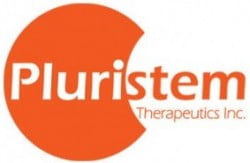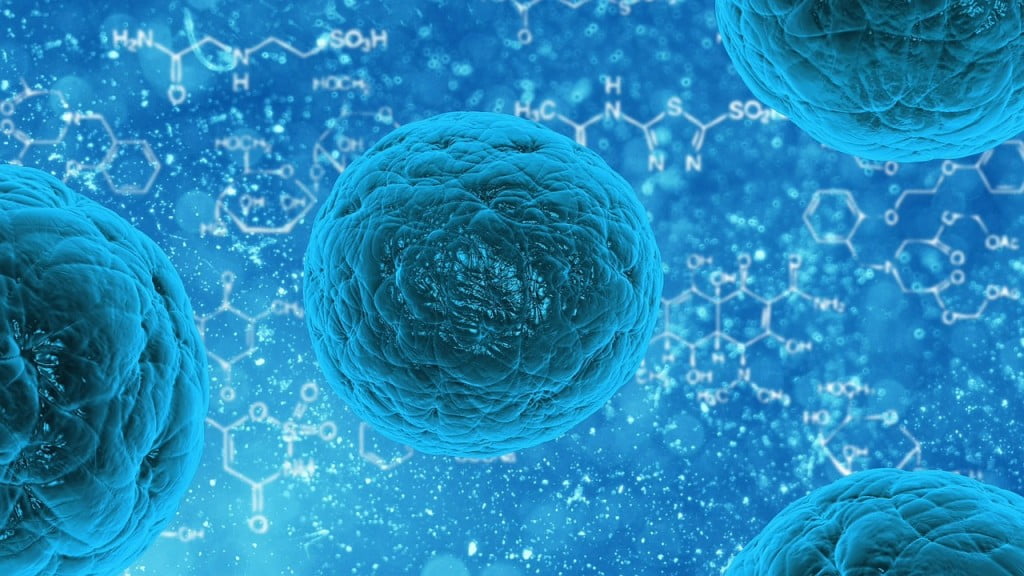Medical companies throughout the world are pinning their hopes for miracle cures on stem cell therapies. By definition, an embryonic stem cell is one that has the potential to turn into any cell in the human body. Because of this unique ability, stem cells are central to the field of regenerative medicine which seeks to restore or establish normal bodily function in sick patients by regenerating human cells, tissues or organs.
Israeli researchers have long been at the forefront of this fascinating field. This is, in part, due to a head start provided by Israeli government policy and strong social support for research using embryonic as well as adult stem cells. As a result of this support, Israel has birthed a plethora of academic research as well as some notable biotech companies putting the tools of academia to practical use.
Related articles
- Super-Vaccine To Eradicate The Flu, Including Bird Flu
- Revolutionary New Algorithm Succeeds In Prolonging Life
A recent investment by Johnson & Johnson in Capricor, an American company developing a stem cell solution for heart disease, has reinvigorated enthusiasm for the field in 2014 as well as quieted some concerns about its commercial potential.
Given the change in the industry climate, it’s a good time to review some of the most exciting stem cell companies in the land of milk and honey. These five companies – all of them at the forefront of stem cell technology and regenerative medicine – are developing cutting edge treatments once only dreamed of in science fiction.
1. BrainStorm Cell Therapeutics – fighting Parkinson’s and ALS
 While the peripheral nervous system, which is composes of the nerves outside the brain and spinal cord, has an intrinsic ability for repair and regeneration, the central nervous system is, for the most part, incapable of self-repair and regeneration. BrainStorm Cell Therapeutics, founded in 2004, is a clinical stage company developing a breakthrough stem cell solution designed to solve that problem. It’s called NurOwn.
While the peripheral nervous system, which is composes of the nerves outside the brain and spinal cord, has an intrinsic ability for repair and regeneration, the central nervous system is, for the most part, incapable of self-repair and regeneration. BrainStorm Cell Therapeutics, founded in 2004, is a clinical stage company developing a breakthrough stem cell solution designed to solve that problem. It’s called NurOwn.
NurOwn, based on research by Doctor Eldad Melamed and Doctor Daniel Offen, is created by extracting stem cells from patients and driving them through differentiation until they become specialized to support regrowth and protection of neurons. Focusing on treating Amyotrophic Lateral Sclerosis (ALS, often referred to as Lou Gehrig’s disease), Parkinson’s disease (PD), and Multiple Sclerosis (MS), diseases of the nervous system that cause symptoms ranging from minor difficulty with sensing touch, vision, and mobility to far more severe consequences, including paralysis and even death.
In light of their breakthrough approach, Brainstorm has been granted orphan status by the FDA and EU and is currently conducting clinical trials for ALS. They have a Phase IIa ALS clinical trial with NurOwn at the Hadassah University Medical Center in Jerusalem and are currently planning Phase II studies in the US.
2. Cell Cure – healing the blind
 Cell Cure, now a subsidiary of BioTime, is a preclinical stage company founded in 2005 based on technology from Hadassah Hospital’s Human Embryonic Stem Cell Research Center. Their technologies, developed from embryonic stem cells, focus on treating diseases that affect the eyes and the nervous system.
Cell Cure, now a subsidiary of BioTime, is a preclinical stage company founded in 2005 based on technology from Hadassah Hospital’s Human Embryonic Stem Cell Research Center. Their technologies, developed from embryonic stem cells, focus on treating diseases that affect the eyes and the nervous system.
Their lead product, OpRegen, is specifically trying to treat age-related macular degeneration (AMD), the leading cause of vision loss in the elderly. AMD causes damage to the macula, a small spot near the center of the retina, which is made up of millions of light-sensing cells essential to clear vision. The most promising therapy for advanced cases of AMD is the replacement of these damaged cells. However, the lack of a reliable and ample supply of donor cells has limited transplantation as a therapeutic approach to AMD.
To make OpRegen, Cell Cure uses a patented method that drives the differentiation of human embryonic stem cells into these specialized cells of the macula. These cells can then be implanted to restore vision to the millions suffering from AMD.
3. Kadimastem – making drug-trials safer
Sign up for our free weekly newsletter
Subscribe  Founded in 2009 by Yossi Ben-Yossef and Doctor Michel Revel, Kadimastem is a development stage company. Recently, Kadimastem formed a partnership with Merk-Serono, a German pharmaceutical company, to use their stem cell technologies to perform drug screening. Their technology grants the ability to safely test therapies directly on specialized cells, allowing better insight into how therapies will work before using them in clinical trials and, as a result, preventing potential harm to patients.
Founded in 2009 by Yossi Ben-Yossef and Doctor Michel Revel, Kadimastem is a development stage company. Recently, Kadimastem formed a partnership with Merk-Serono, a German pharmaceutical company, to use their stem cell technologies to perform drug screening. Their technology grants the ability to safely test therapies directly on specialized cells, allowing better insight into how therapies will work before using them in clinical trials and, as a result, preventing potential harm to patients.
By transforming stem cells into the specialized brain cells that produce myelin, the fatty substance which functions to insulate the brains neural wiring (axons), Kadimastem is helping study drugs for neurodegenerative diseases. These brain cells, called oligodendrocytes, are treatment targets for MS, a disease in which this special insulating myelin is destroyed by the immune system. In cases of MS, it’s the destruction of myelin that causes symptoms ranging from limb numbness and vision loss to paralysis.
Producing cells on a large scale for drug screening is just one way Kadimastem is working to fight disease. Kadimastem is also building on its own regenerative medicine therapies to treat neurodegenerative disease as well as diabetes.
4. Pluristem – treating injuries and unblocking blood vessels
 Pluristem Therapeutics, founded in 2001 by Shai Meretzki of the Technion, is a clinical-stage biotechnology company using stem cells of placental origin to develop cell therapies for various diseases including peripheral vascular disease (PVD), pulmonary arterial hypertension and muscle injury.
Pluristem Therapeutics, founded in 2001 by Shai Meretzki of the Technion, is a clinical-stage biotechnology company using stem cells of placental origin to develop cell therapies for various diseases including peripheral vascular disease (PVD), pulmonary arterial hypertension and muscle injury.
In peripheral vascular disease, patients develop blockages in their vessels preventing blood flow to their limbs and starving them of oxygen and nutrients. This can occur either acutely or chronically, leading to limb pain, impaired wound healing or even amputation. One of their lead products, PLX-PAD, is in a phase II clinical trial currently recruiting patients. By infusing these specialized cells, they aim to re-establish blood flow to the affected limbs and promote their healing. PLX-PAD was also being tested in a phase I/II trial for the treatment of muscle injury; the results, presented on January 21, showed that PLX-PAD cells were safe and statistical significance was reached for the primary efficacy endpoint of the study.
Because of their origin, at the interface of mother and child, placental cells are immunoprivileged, meaning they do not provoke the immune system when transplanted. As a result, Pluristem’s therapies can be used “off the shelf” without matching the donor cells to the unique immune fingerprint of the recipient with no risk of rejection by the new host.
5. Orgenesis
![]() Orgenesis, founded in 2010 by Doctor Sarah Ferber (head of endocrine research at Sheba Medical Center), is seeking to overcome donor shortages by making stem cell solutions for transplantation, specifically for diabetes.
Orgenesis, founded in 2010 by Doctor Sarah Ferber (head of endocrine research at Sheba Medical Center), is seeking to overcome donor shortages by making stem cell solutions for transplantation, specifically for diabetes.
Diabetes is a disease that affects many millions of people worldwide. In Type 1 Diabetes (T1D) the immune system destroys a special subset of cells in the pancreas (a hormone producing organ) that help control blood sugar. These special cells are called beta cells, and they function by detecting levels of sugar in the blood then releasing a specialized hormone called insulin. After these cells are destroyed the body can no longer make enough insulin and diabetes patients must inject insulin to stay alive.
Orgenesis‘s treatment aims to transform liver cells into insulin-producing cells in the patients, thus eliminating the need for a transplant.
Ben Miron is a medical student and researcher at NYU School of Medicine. He is fascinated by the amazing emerging technologies and discoveries being made in the life sciences as they pertain to healthcare. Read about some of these mind-blowing and bordering on sci-fi advances happening in Israel on his blog milkandscience.com and follow him on twitter @milkandscience.
Related posts

Israeli Medical Technologies That Could Change The World

Harnessing Our Own Bodies For Side Effect-Free Weight Loss

Missing Protein Could Unlock Treatment For Aggressive Lung Cancer




Facebook comments